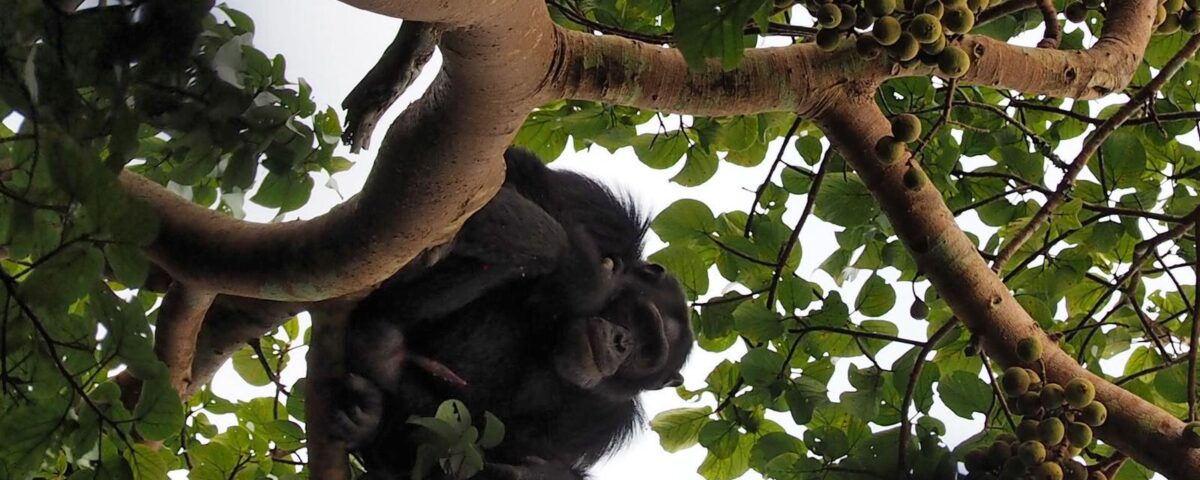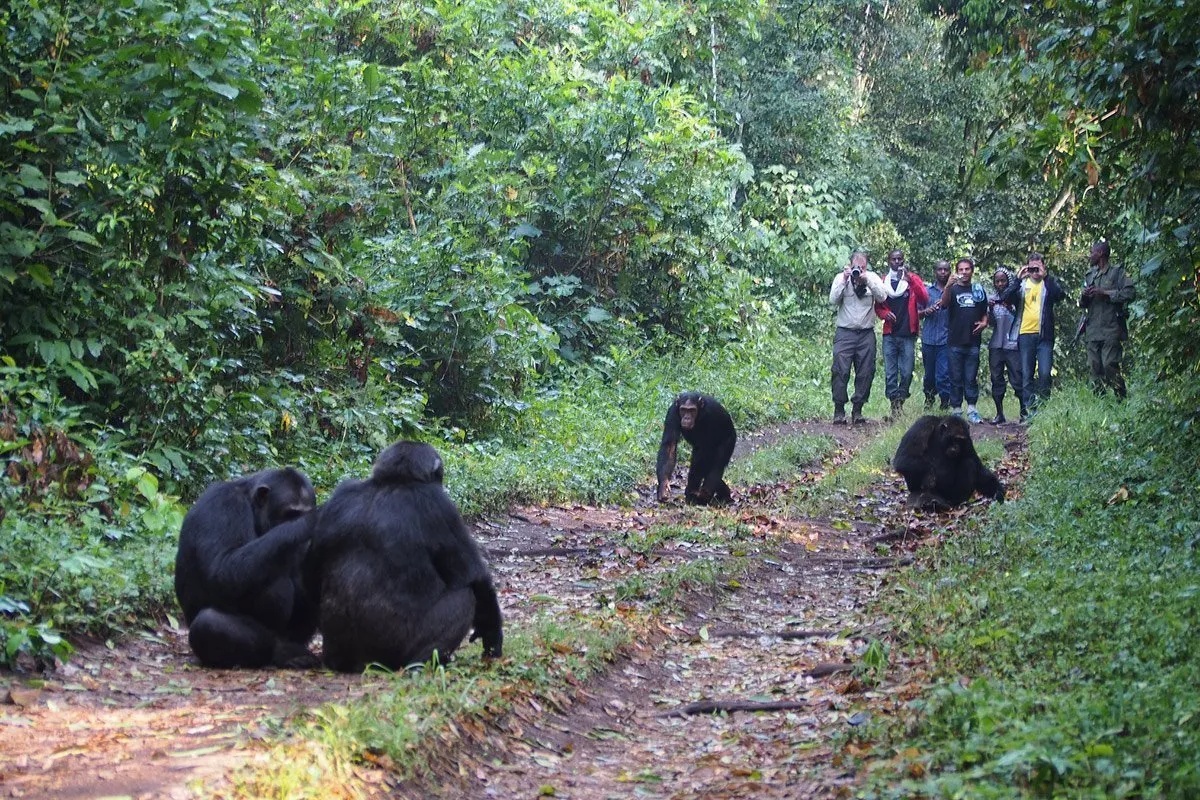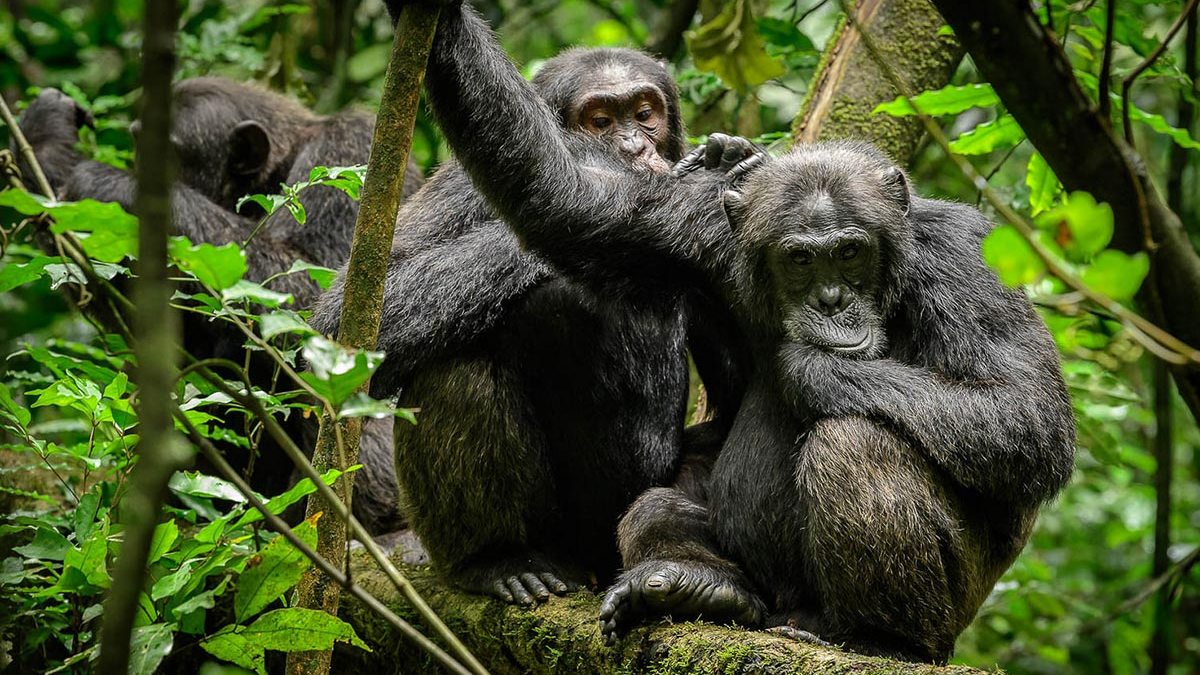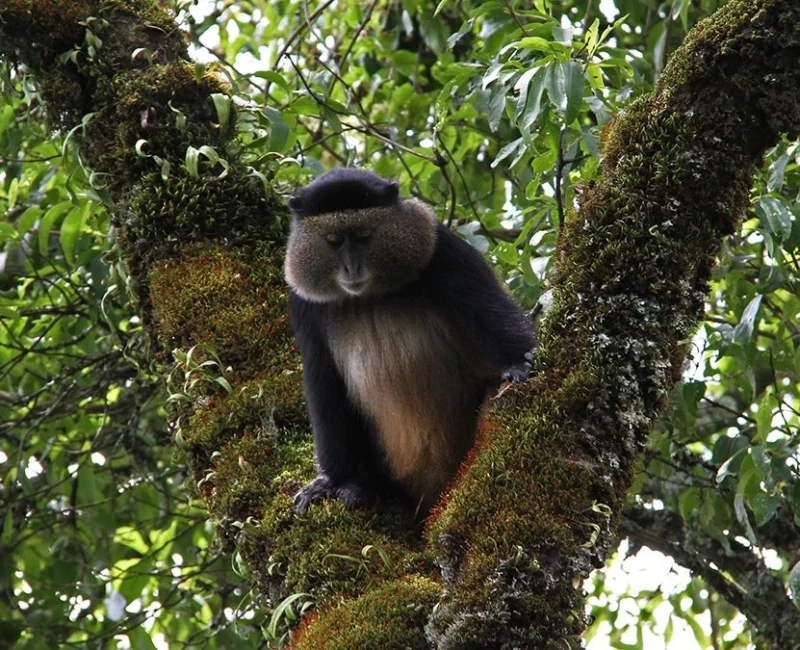Chimpanzee Tracking Experience in Uganda
October 10, 2025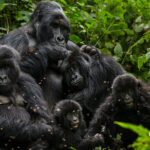
Ultimate Uganda Primate Safari
October 11, 2025Understanding Chimpanzee Communication and Social Structure
Exploring Chimpanzee Societies in Uganda
Understanding chimpanzee communication and social structure is a cornerstone of Uganda Wildlife Safaris and wildlife exploration in Africa. Chimpanzees are highly intelligent primates whose social organization, intricate communication, and cultural behaviors make them fascinating subjects for both scientists and tourists.
Experiencing these primates in the wild, through Uganda Wildlife Tours or chimpanzee trekking adventures, provides insights into behaviors that closely resemble human social patterns. From alpha male hierarchies to mother-offspring bonds, these primates demonstrate a sophisticated balance of cooperation, competition, and learning.
Tourists can witness vocalizations, gestures, and context-dependent calls that reveal their intentions, emotions, and cultural knowledge. Understanding these interactions deepens the safari experience and highlights the importance of ethical observation practices during Uganda Safaris Holidays.
Combining this wildlife observation with local cultural experiences around safari lodges further enriches the Uganda Safari Holiday, creating a holistic understanding of nature and community.
Chimpanzee Social Structure: Hierarchies and Relationships
Chimpanzee social structures are complex, hierarchical systems dominated by alpha males who lead the group and maintain order. The alpha male plays a crucial role in decision-making, territory defense, and mediating disputes within the community.
Male dominance is not solely determined by aggression; it also involves forming coalitions and alliances with other males to secure influence and access to resources.
Meanwhile, females establish long-lasting alliances, often supporting each other in raising offspring and ensuring group stability. These alliances shape reproductive success, influence social dynamics, and provide protection against potential threats.
Mother-offspring bonds are particularly strong, with mothers providing care, grooming, and teaching essential survival skills for several years. Sons often maintain lifelong connections with their mothers, reflecting the extended period of development necessary to navigate complex social hierarchies.
Uganda Wildlife Safaris visitors observing these interactions gain unparalleled insights into the delicate balance of cooperation and competition that defines chimpanzee communities. This social sophistication makes chimpanzees an extraordinary feature of Uganda Tours and primate-centered safari experiences.
Communication Among Chimpanzees: Vocalizations and Gestures
Chimpanzee communication is multi-layered, involving vocalizations, gestures, facial expressions, and body postures to convey precise information. Vocal signals, including hoots, barks, grunts, screams, and pant-hoots, carry different meanings depending on context.
For instance, a single hoot might indicate a threat or alert, while a pant-hoot signals group cohesion and long-distance communication. Gestures are equally important, such as extending a hand for grooming, using body postures to assert dominance, or a bared-teeth grin to show submission.
Facial expressions communicate subtle emotions, including fear, joy, or curiosity, and are often combined with gestures for clarity. This sophisticated signaling allows chimpanzees to coordinate group activities, negotiate social conflicts, and transmit knowledge across generations.
Observing these behaviors during Uganda Wildlife Safaris provides travelers with a deeper appreciation of primate intelligence, mirroring aspects of human social interaction. The opportunity to witness these complex communications firsthand elevates Uganda Safaris Holidays beyond traditional wildlife viewing into an immersive learning experience.
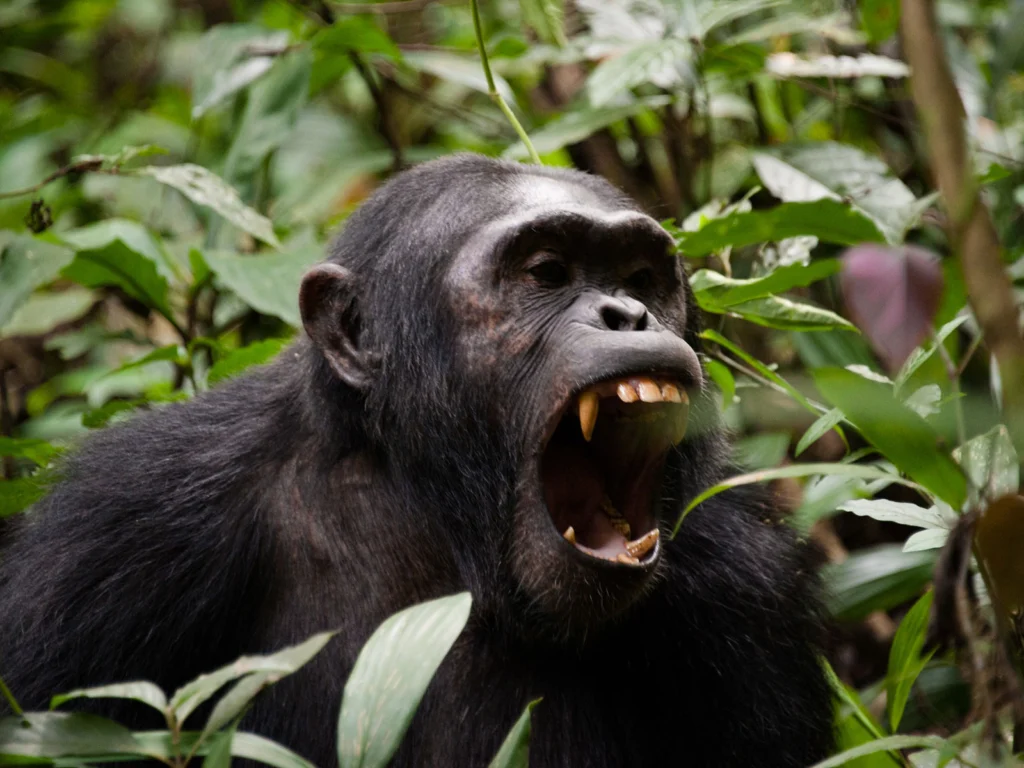
Kibale National Park
Context-Dependent Calls and Proto-Conversational Skills
Chimpanzees exhibit remarkable context-dependent vocalizations that vary in meaning based on social or environmental circumstances. For example, the same vocalization can signal a predator alert in one context or excitement during play in another.
These nuanced calls demonstrate an advanced understanding of social cues and environmental awareness. Furthermore, chimpanzees display proto-conversational abilities, including turn-taking, elaborating signals when responses are delayed, and combining sounds in structured sequences.
These behaviors suggest an early form of communication resembling human conversation, offering unique insights into the evolution of language. Travelers on Uganda Wildlife Safaris observing these interactions experience firsthand the intelligence and adaptability of chimpanzees.
This deepens both scientific understanding and personal appreciation, highlighting the importance of ethical observation practices during trekking and wildlife tours.
Social Learning and Cultural Transmission
Chimpanzees rely heavily on social learning to acquire skills, norms, and survival strategies. Young primates observe older group members to learn foraging techniques, tool usage, and social behaviors.
Certain behaviors, such as leaf clipping, termite fishing, or grooming rituals, vary between communities, reflecting the transmission of cultural knowledge. These traditions demonstrate that chimpanzee behavior is not entirely instinctual but influenced by experience and environment.
For tourists, observing cultural behaviors during Uganda Wildlife Tours emphasizes the dynamic, intelligent nature of chimpanzees. Ethical trekking ensures minimal disruption, allowing visitors to witness genuine social interactions while supporting long-term conservation.
By combining wildlife observation with cultural immersion around safari lodges, travelers gain a holistic understanding of how chimpanzee societies function, mirroring human social complexities. Uganda Safari Holiday experiences that highlight both wildlife and local culture provide unforgettable learning opportunities.
Integrating Chimpanzee Observation with Cultural Experiences
While chimpanzee tracking showcases Africa’s primate biodiversity, integrating cultural experiences around safari lodges enhances Uganda Holidays. Visitors can explore:
- Batwa Cultural Experiences: Engage with Uganda’s indigenous Batwa communities through storytelling, traditional dance, and handicraft workshops.
- Village Walks: Observe local farming, banana brewing, and artisanal weaving, learning how communities coexist with wildlife.
- Evening Cultural Shows: Participate in performances reflecting Ugandan traditions, combining relaxation with cultural education.
These experiences complement wildlife observation, reinforcing the ethical, responsible, and educational aspects of Uganda Safari Holidays. Travelers witness the interconnectedness of people, primates, and ecosystems, gaining both knowledge and appreciation for conservation efforts.
Tips for Ethical Observation of Chimpanzees
- Follow Ranger Guidance: Always adhere to instructions to maintain safety and minimize wildlife disturbance.
- Maintain Safe Distance: Keep at least seven meters from chimpanzees to prevent stress or disease transmission.
- Wear Appropriate Clothing: Long sleeves, trousers, and sturdy boots protect against vegetation and insects.
- Minimize Noise: Speak softly and move carefully to avoid startling primates.
- Observe Without Touching: Avoid feeding or touching chimpanzees to preserve their natural behavior.
Following these guidelines ensures a safe, immersive, and responsible Uganda Wildlife Safari experience. Tourists contribute to conservation efforts while enjoying an unparalleled encounter with intelligent primates.
Deepening Understanding Through Chimpanzee Observation
Understanding chimpanzee communication and social structure enriches Uganda Wildlife Safaris by providing insights into primate intelligence, social dynamics, and cultural learning.
Ethical observation allows travelers to witness alpha male hierarchies, female alliances, proto-conversational behaviors, and cultural traditions without disturbing their natural environment. Integrating wildlife observation with local cultural interactions creates a complete Uganda Safari Holiday, highlighting both human and ecological connections.
Tourists leave with transformative experiences, heightened conservation awareness, and unforgettable memories of primates that mirror many human social behaviors.
Observing chimpanzees responsibly ensures their survival for future generations while establishing Uganda as a leading destination for ethical and immersive Uganda Wildlife Tours, Uganda Safaris, and primate-centered adventures.

